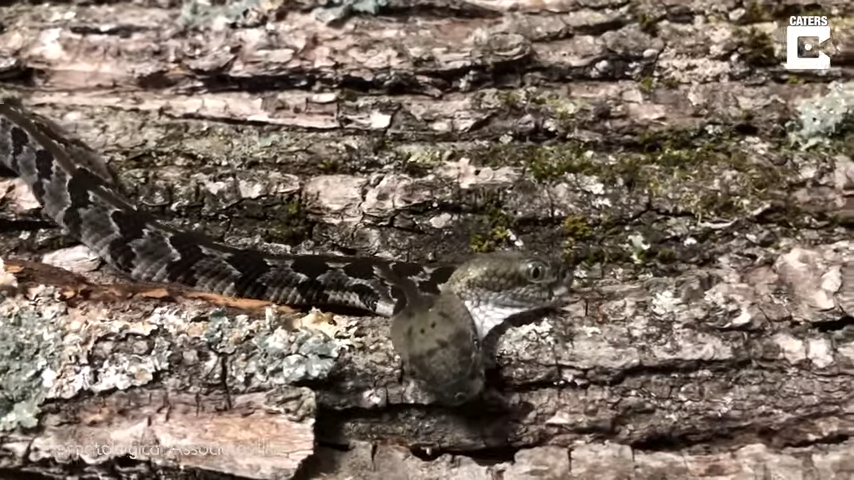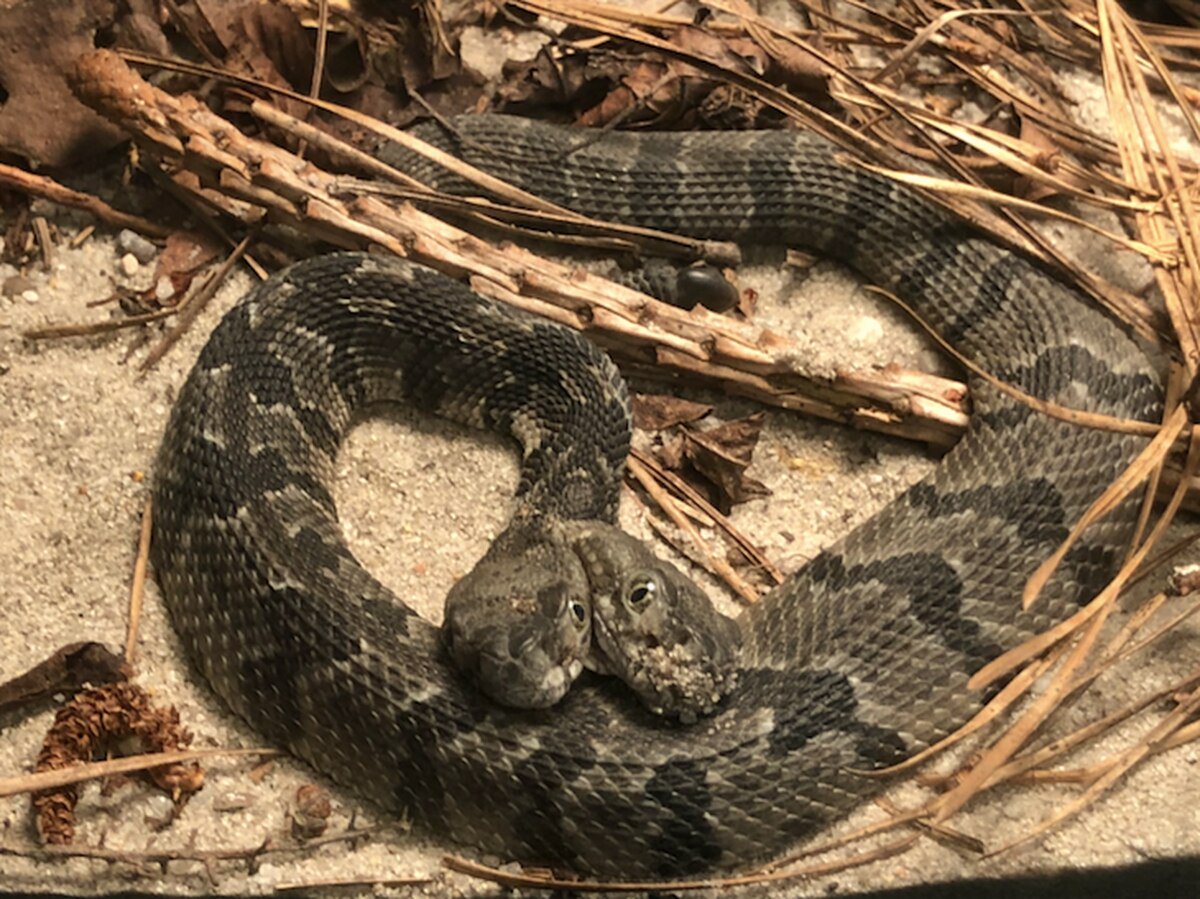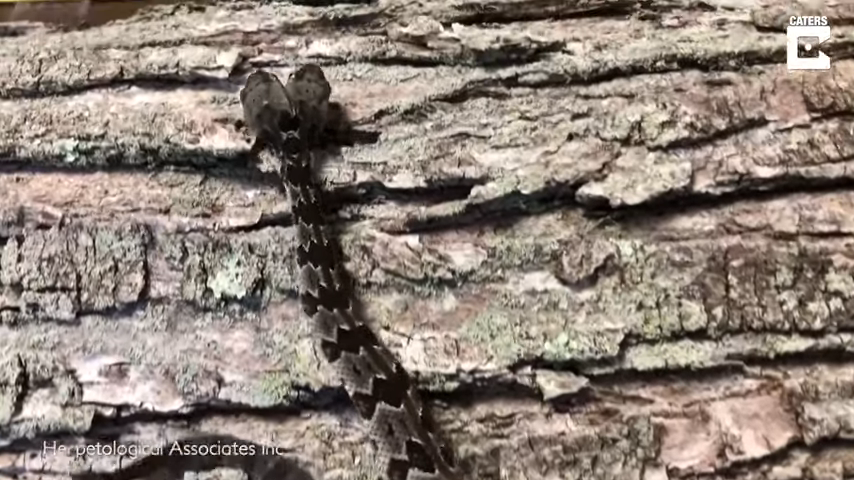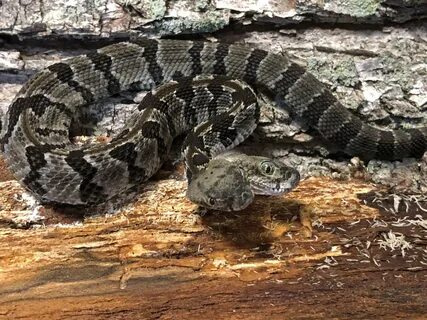A team of ecologists from Herpetological Associates in the United States has made a rare and fascinating discovery in Pine Barrens, New Jersey. The team found a two-headed rattlesnake, a unique specimen that has captured the attention of the scientific community and the public alike.
According to the researchers, the snake is in excellent health and can stretch its two heads in different directions simultaneously. This discovery has excited herpetologists, who are now eager to study this rare creature and learn more about its physiology and behavior.
Rattlesnakes are known for their distinct rattles, which they use to warn predators of their presence. These venomous snakes are found throughout North and South America, and they play an important role in maintaining ecological balance in their habitats.
The discovery of a two-headed rattlesnake is particularly significant, as it is an extremely rare occurrence in nature. Such creatures are known as bicephalic or dicephalic, and they occur when the embryo of an animal fails to separate fully during development, resulting in two heads sharing a single body.
While bicephalic animals are not unheard of, they are usually not able to survive in the wild due to the challenges they face in coordinating their movements and behaviors. The fact that this two-headed rattlesnake is healthy and thriving is therefore a remarkable feat of nature.
The discovery of this two-headed rattlesnake is an important reminder of the incredible diversity and complexity of life on our planet. It is a testament to the resilience and adaptability of nature, and it highlights the importance of preserving our ecosystems and protecting the many species that call them home.
The researchers are continuing to study this unique specimen, and they hope that their findings will help us better understand the biology and behavior of two-headed animals. This discovery has sparked a new wave of interest in these rare creatures, and it is sure to inspire further research and investigation in the years to come.
